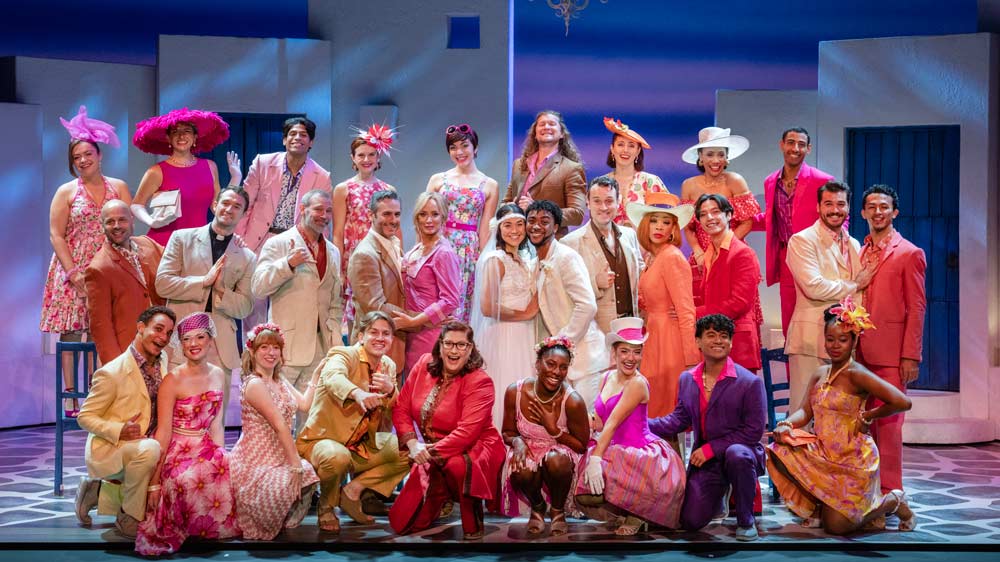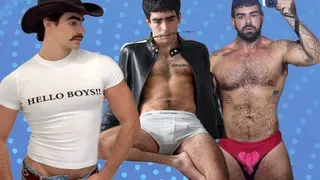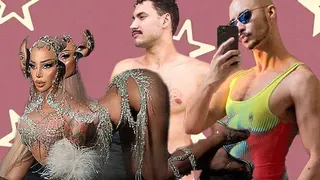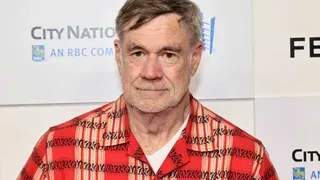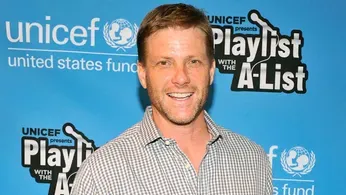
December 2, 2024
'Melrose Place' Star Doug Savant Recalls How He Stuck to His Guns about Playing Gay
Kilian Melloy READ TIME: 3 MIN.
Heterosexual actor Doug Savant played a gay character on "Melrose Place" for five seasons, from 1992 - 1997. During that time, he refused to bow to pressure to say he was straight while portraying the character, Entertainment Weekly reported.
Savant recalled how the show's publicity people wanted him to make a point of distinguishing himself from Matt Fielding, the gay character he portrayed, during an appearance on the "Still the Place" podcast hosted by fellow "Melrose Place" alumni Laura Leighton, Courtney Thorne-Smith, and Daphne Zuniga, EW detailed.
It started with Savant himself bringing it up. The actor recalled, "When we were shooting all those things and the trailers for the show, I said to Sam, our publicist, 'Do you care to talk about how we're going to handle this going forward, that there was a gay character?'"
"I knew it was exceptional," Savant explained, "and I thought people would be interested."
The response he got?
"Well, no, it's not a big deal," Savant recalled being told. "'You're an actor, you're just playing a character.' And I said, 'Oh, clearly she doesn't get it.'"
That wasn't the end of the issue, though.
"Eventually, he was called into a meeting with 'Melrose Place' creator Darren Star and the show's PR team," EW said.
"We don't see why it's a big deal," Savant described being told. "Why wouldn't you just say, 'Well, it shouldn't matter, but I'm heterosexual?"'
"I said 'No,'" Savant recounted. "I was not going to make my living playing a gay man, but then say, 'Oh, I would never be associated with that.'"
Rather than state his sexuality, Savant made a point of underscoring how other actors weren't quizzed about their orientations because of who they portrayed.
Savant said he was "asked, in every conceivable way, whether I was straight or gay. And I would then say, 'Well, it's interesting, just that that's the assumption.'" He offered the example of co-star Andrew Shue, who played Billy, a heterosexual man, on the show; Shue, he said, was not asked whether he, like his character, was straight.
Journalists would come at the question from another direction. "What do you have in common with the character?" Savant recalled being asked. "I'd say, 'Well, we're the same height and we both have a sense of humor.'"
Savant's sensitivity was related to the way the character of Matt was one of the very few queer characters to grace the small screen.
"We had had Billy Crystal," Savant noted, referring to Crystal's role as a gay man on the comedy "Soap." He continued, saying, "we were about to have Mitchell Anderson on 'Party of Five,' and Bill Brochtrup, a friend of mine, on 'NYPD Blue.'"
"But at the time," Savant noted, he "was the only one" playing a queer role. "So there was an enormous amount of interest."
"Savant is forgetting a few other notable predecessors, like Al Corley's character on 'Dynasty' and Wilson Cruz's character on 'My So-Called Life,' which was the first queer character to be played by an openly queer actor," EW pointed out. "But his point is well-taken; with so few representatives of a vulnerable demographic in the TV landscape, the pressure was on to accord the character his requisite dignity."
The show's writers did their part, EW said. "Matt Fielding avoided some of the stereotypical issues that plague queer characters in media – his storylines weren't racked with tragedy, he wasn't a self-hating closet case, and he wasn't the undeveloped gay best friend."
Still, Matt wasn't allowed to flourish as fully as he might have been. EW referred to the character's lack of love interests. And when he did have a romantic moment, it was a gay kiss that was intended to take place on screen but instead happened offscreen, with the camera cutting "to another character's reaction to the kiss to illustrate the kiss itself."
Kilian Melloy serves as EDGE Media Network's Associate Arts Editor and Staff Contributor. His professional memberships include the National Lesbian & Gay Journalists Association, the Boston Online Film Critics Association, The Gay and Lesbian Entertainment Critics Association, and the Boston Theater Critics Association's Elliot Norton Awards Committee.
